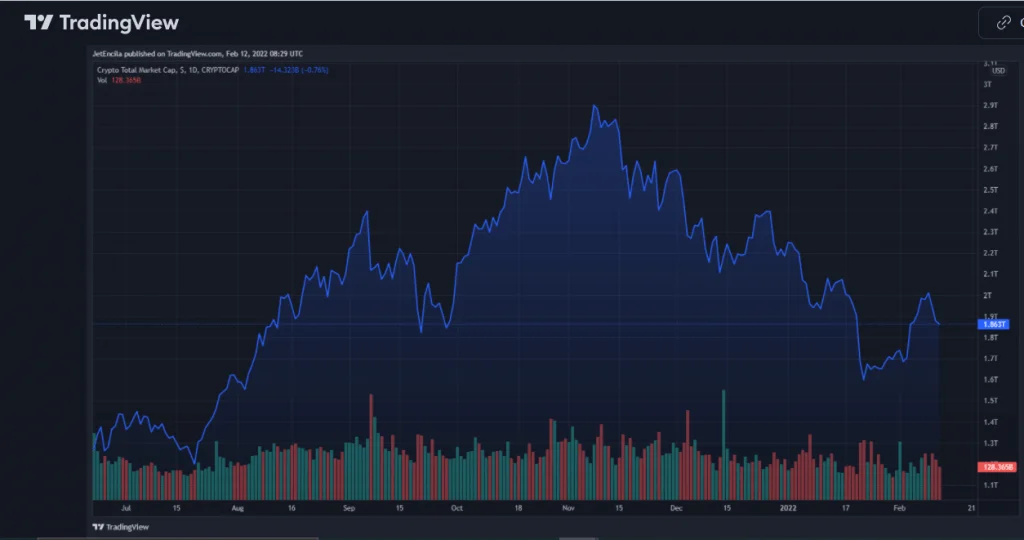Romance scams are becoming more and more common in the San Francisco Bay Area, and the FBI has warned about this.

A lot of people will play Mr Cupid in the run-up to “heart’s day,” but his arrows of love will not only break your heart but also your wallet too.
Bleeding Hearts and Bleeding Wallets
The Federal Bureau of Investigation is telling people not to fall for scams that will leave them not only with a bleeding heart but also broke.
It was just a few days before Valentine’s Day, and the FBI’s San Francisco field office warned the public about a rise in romance scams based on complaints made to the FBI’s Internet Crime Complaint Center.
A romance scam is when people set up fake accounts and try to get people to transfer money under the guise of emotional intimacy. Both men and women can be tricked into giving money.
There have been reports of romance scams in every county in the San Francisco FBI’s area. Most money was taken from Santa Clara, San Francisco, and Alameda counties, but not all of it was taken at once.
Valentine’s Day Tragedy
In the past year, there were more reports of romance scams from people of every age group. For people ages 18 to 29, the FTC says that there has been a big rise in sales.

Between 2017 and 2021, the number of reports for this age group more than tripled. However, the median loss reported by people got bigger as they got older. People who were 70 or older reported median losses of $9,000, compared to $750 for people who were 18 to 29, the FTC said.
In the last few months, romance scammers have been getting people to send money so they can invest in or trade cryptocurrency, like bitcoin. Romance fraud happens when a criminal makes up a fake online persona in order to get a victim’s love and trust. These con artists are very good at disguises. They make fake online profiles by using attractive stock photos from the internet to make them look good.
The scammer then manipulates and/or steals from the victim by making the victim think they have a romantic or close relationship with the scammer.
FTC Report
Online dating, according to FTC data, provides one of the biggest prospects for fraudsters. Love is also in great demand by fraudsters, which is a severe problem. The paper, which was issued just in time for Valentine’s Day, claims that bitcoin is at least partially to blame for the increase of this type of online trust fraud.
Over the previous five years, people have reported losing an incredible $1.3 billion to romance scams, more than any other sort of FTC fraud. In previous years, the figures have climbed considerably, and 2021 was no exception — recorded losses reached $547 million.
In order to deceive others, these unscrupulous individuals construct a number of convincing scenarios, but their tried-and-true plot comprises repeated calls for help while claiming one health or financial problem after another. As a result, be cautious when it comes to romance. It’s impossible to predict when or how it’ll happen.
How to Protect Yourself From Crypto Scams
Cryptocurrency is becoming more and more popular all over the world. With a lot of people making unimaginable money every day, more people are joining the cryptocurrency bandwagon for a variety of reasons.
For one thing, it gives people control over their money and other things. However, if there isn’t an authority to keep track of how cryptocurrency channels work, users can fall for scams and be scammed. With time, the popularity and rise in the value of cryptocurrencies like Bitcoin, Ethereum, and Dogecoin, has led to more people being scammed.
What are Crypto Scams?
The most common goal of crypto scams is to get private information such as security codes or to dupe an unwary user into sending bitcoin to a hacked digital wallet.
How to identify and protect yourself from crypto scams
There are several types of crypto scams out there and a few of them would be covered in this article. In general, cryptocurrency scams fall into two groups:
- Initiatives aimed at getting a person’s digital wallet or authentication credentials. They try to get information that gives them access to a digital wallet or other private information like security codes from people who want to scam them. Physical hardware can be accessed in some cases, but not all the time.
- Directly sending cryptocurrencies to a fraudster as a result of impersonation, false investment or business possibilities, or other malevolent tactics.
Romance Scams
Scammers often use dating websites to deceive naive victims into thinking they are in a genuine long-term relationship. When confidence is established, discussions frequently shift to lucrative cryptocurrency prospects and the ultimate transfer of money or account authentication keys. Cryptocurrency accounted for around 20% of the money allegedly lost in romance scams.

Between January 1st and July 31st, 2021, individuals in the United States lost $133,400,000 to romance scams, according to the FBI. Per-user, the average loss was in the tens of thousands of dollars. Scammers frequently mislead victims into believing they are investing in bitcoins.
“The scammer’s initial contact is typically made via dating apps and other social media sites,” the FBI says. “The scammer gains the confidence and trust of the victim—through establishing an online relationship—and then claims to know about cryptocurrency investment or trading opportunities that will result in substantial profits. The scammer directs the victim to a fraudulent website or application for an investment opportunity. After the victim has invested an initial amount on the platform and sees an alleged profit, the scammers allow the victim to withdraw a small amount of money, further gaining the victim’s trust.”
According to the FBI, once a scammer has a victim, they will continue to come up with new justifications for the victim to give money.
Social Engineering Crypto Scams
Scam requests for Bitcoin wallet recovery codes using social engineering. Scammers employ psychological manipulation and deception to take control of key information about user accounts in social engineering schemes. People are led to believe that they are working with a trustworthy institution, such as a government agency, a well-known corporation, tech support, a community member, a work colleague, or a friend, when they are not.

Scammers will frequently approach a prospective victim from any angle or spend as much time as they need to build their confidence and have them give sensitive information or send money to the scammer’s digital wallet. It’s usually a hint of fraud when one of these trustworthy relationships requests bitcoin for whatever reason.
Cloud Mining Scams
Retail buyers and investors will be marketed via platforms in order to assure a continual stream of mining power and compensation. These platforms do not genuinely possess the hash rate they claim to own, and they will not provide the benefits once you make a deposit. While Cloud Mining is not inherently a scam, it is important to undertake complete due diligence on the site before investing.

We have both legitimate cloud mining firms and total frauds. When Bitcoin became popular, a slew of ponzi scams sprung up, the most well-known of which were Bitcoin Savings and Trust, Bitconnect, and OneCoin. Ponzi is also known as a “Pyramid Scheme.”
It’s a form of an investment program in which you must make a financial investment to join. Those who arrived earlier are compensated by those who arrive later. For whatever reason, the reimbursements eventually stop, and the folks at the bottom of the pyramid are left with nothing.
DeFi Rug-Pull
A rug-pull is a term used in cryptocurrency and DeFi to describe a circumstance in which crypto developers flee with investors’ assets following a successful cyber robbery.

This is a common occurrence in the DeFi ecosystem, and it occurs when the project is projected to become public, be traded on a known exchange, or when there is little or no more investor backing to help with scalability. When developers successfully launch a token on a decentralized exchange and couple it with a popular crypto asset like Ether, SOL, BTC, and so on, this is a more prominent example.
The combination shows that the token has a lot of promise, but it also draws a lot of money. Investors may have exchanged their Ether (for example) for the token at this stage.
The token developer, on the other hand, withdraws all of the funds and then blames a mysterious glitch or hack for the tragic loss of a significant number of tokens, resulting in the token’s abandonment.
Phishing Scams
Phishing scams are common in the cryptocurrency business, and often target information about online wallets. Scammers are particularly interested in crypto wallet private keys, which are the keys needed to access the wallet’s money.

Their style of operation is similar to that of many common con artists. They send an email that directs recipients to a custom-built website where they must submit private key information. Once the hackers obtain this information, they will be able to steal the bitcoin stored in the wallets.
Consumers are targeted by phishing schemes on a regular basis. According to the FBI, phishing attacks affected over 114,700 people in 2019. They lost a total of $57.8 million, or around $500 each.
Tips on Protecting Yourself From Crypto Scams
- Never send money, trade, or invest money based only on the advise of someone you met online.
- Don’t reveal your financial status to strangers .
- Don’t give out your financial information, Social Security number, copies of your ID or passport, or any other sensitive information to anybody online or to a site you don’t trust.
- If an online investing or trading site advertises incredible profits, it’s likely that it’s a scam
- Avoid people who claim to have exclusive investment opportunities and urge you to act fast.
Wrapping up
Many individuals have compared the frenzied rush into cryptocurrencies to the Wild West. Scammers will definitely continue to target the crypto ecosystem as it grows in size and complexity.
As previously stated, there are two types of crypto scams: socially engineered efforts focused on gaining account or security information, and having a target transmit bitcoin to a compromised digital wallet.
You’ll be able to recognize a crypto-related scam early and avoid it from occurring to you if you understand the typical ways fraudsters try to steal your information.
